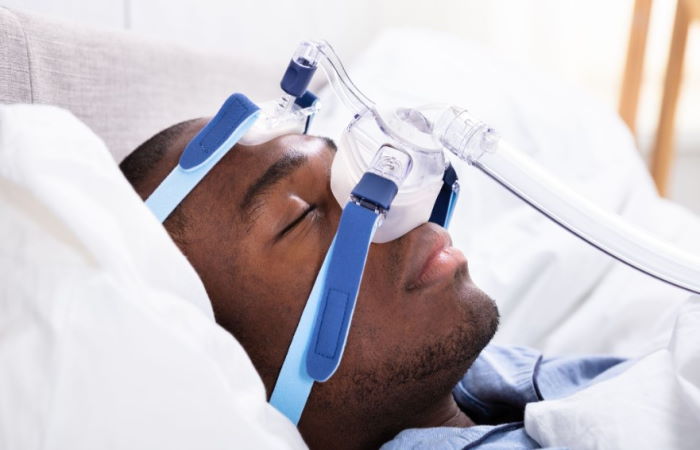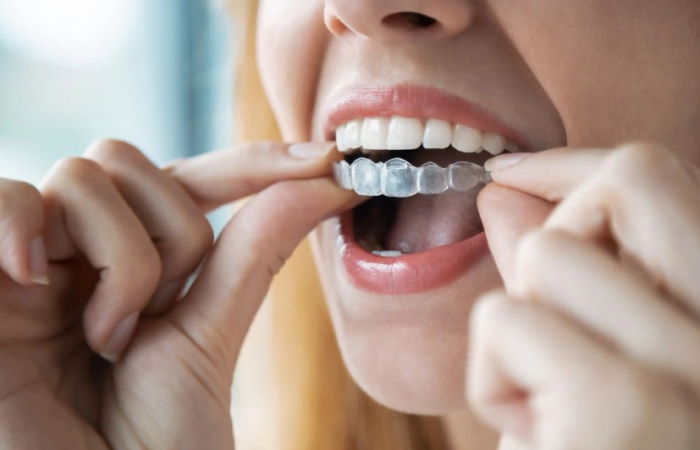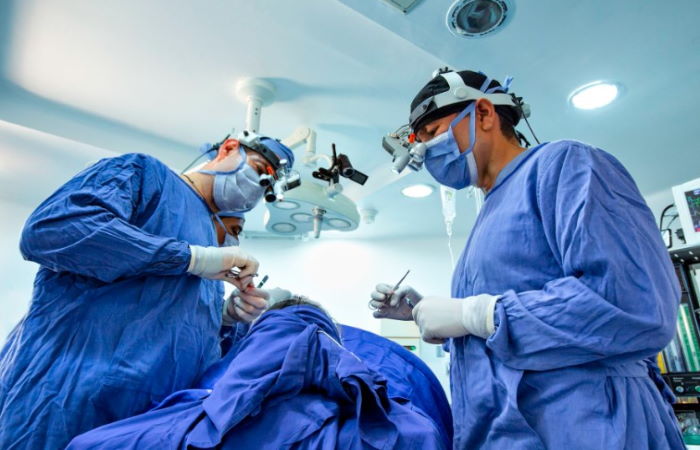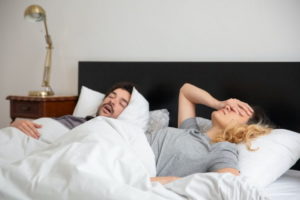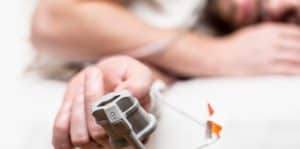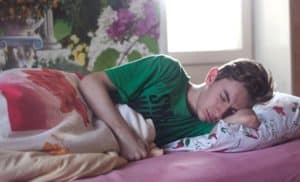If left untreated, sleep apnea can be life-threatening as it can cause various complications like high blood pressure, heart attack, or stroke. A CPAP machine is the standard treatment for obstructive sleep apnea. This treatment involves wearing a mask connected to a machine that sends pressurized air into the nose and mouth. This machine enables normal breathing, preventing the airway from collapsing during sleep.
Sadly, CPAP therapy is not suited for everyone. Some patients feel claustrophobic while wearing the mask, while others suffer from nasal congestion. Thankfully, there are other suitable treatments for sleep apnea that your doctor might recommend.
Best Alternative Treatments for Sleep Apnea
The following are the top alternative treatments for patients with sleep apnea. Make sure to discuss these alternatives with your sleep doctor.
- Oral or Dental Appliances
The use of oral or dental devices is growing in popularity among patients with sleep apnea . Such devices are a more suitable alternative for anyone who finds the CPAP mask uncomfortable.
An oral device is inserted into the mouth to prevent the airway from collapsing. It also holds your tongue in the proper position during sleep by forcing your jaw forward. This position allows you to achieve normal breathing while you sleep. For this device to be effective, it must be custom-fitted by a dental professional. This dental professional must have proper training in sleep medicine.
An oral appliance is ideal for patients with mild to moderate symptoms of sleep apnea.
- Nasal Expiratory Positive Airway Pressure (nEPAP) Device
An nEPAP device is for one-time use and is one of the least invasive alternatives to CPAP for sleep apnea patients. This device is inserted into your nostrils during sleep. It promotes positive pressure during exhalation to prevent the collapse of the upper airway passage.
Some benefits of using this device include reduced snoring, reduced sleep apnea events, and improved sleep quality. This treatment won’t eliminate obstructive sleep apnea symptoms. However, it is a less expensive and more convenient treatment for sleep apnea when traveling.
- Positional Therapy
Positional therapy is a non-invasive alternative to CPAP for sleep apnea treatment. This behavioral strategy benefits patients with sleep apnea when sleeping on their backs.
Therefore, you will be asked to wear a device that forces you to sleep on your side to discourage snoring or sleep apnea. The device ensures you won’t accidentally lie flat on your back while asleep.
A 2012 clinical study supports the effectiveness of positional therapy in addressing the symptoms of mild to moderate sleep apnea. The study was conducted on patients who could not tolerate wearing a CPAP mask.
- Orofacial Therapy
Orofacial therapy is a therapy that targets the oral and facial muscles. This therapy corrects the position of the tongue to keep it from blocking the air passage when breathing. During therapy, you will be trained to control and strengthen your tongue, lips, and facial muscles.
- Weight Loss or Management Program
Obesity is one of the known risk factors for sleep apnea. Sleep doctors and experts recommend losing weight or managing a healthy weight to combat the symptoms of sleep apnea.
If you are overweight, excess fat will accumulate on your neck. It will also result in the formation of excess tissues that cause a blockage to the airway.
A weight loss management program is recommended for obese or overweight people suffering from sleep apnea. This approach does not guarantee that sleep apnea symptoms will be relieved, especially if the patient has a narrow nasal passage.
- Mandibular Advancement Devices
Mandibular advancement devices (MAD) are another alternative treatment for sleep apnea. These devices help to correct the position of your jaw to prevent it from blocking your upper airway. Compared to CPAP machines, this device is less expensive and silent.
This device is suitable for patients with mild to moderate cases of sleep apnea (or for those who exhibit sleep apnea symptoms only when sleeping on their back).
- Surgery for Sleep Apnea
Undergoing surgery for sleep apnea is a last resort and is recommended by sleep doctors only when other treatments are ineffective. Several surgical procedures are available to treat sleep apnea. Your sleep doctor can assess the issue and suggest the best treatment. Some surgical procedures are minimally invasive, while others are more complex.
The most common procedure for sleep apnea involves removing the extra tissue in your mouth that collapses and causes blockage in your airway. This surgical procedure is known as uvulopalatopharyngoplasty. Another surgical technique called somnoplasty uses radiofrequency to remove excess tissue in the upper airway.
Meanwhile, nasal surgery works best in correcting the alignment of the walls between the nasal passages. This procedure corrects a deviated septum that causes the symptoms of sleep apnea.
Surgery is not for everyone. Therefore, sleep doctors will only suggest it, if it is the only way to manage sleep apnea. Some negative aspects of undergoing surgery include bleeding, pain, throat swelling, and having your jaws wired shut, limiting your diet options for weeks.
Why Choose Alternative Treatments for Sleep Apnea?
Using a CPAP machine is the most common treatment recommended for sleep apnea. However, you might want to seek out alternatives for various reasons:
- Buying a CPAP machine is expensive. Prices start at $250 and can go up to $1,000 for higher-end models.
- If you finance your CPAP machine through an insurance company, they have strict compliance requirements for it and that could lead to an invasion of your privacy.
- There is a low adherence rate among CPAP machine users.
- There are many side effects to using CPAP machines, such as a stuffy nose, dry mouth, and red or itchy eyes. The noise caused by mask leaks can be bothersome for those who sleep next to their spouse or partners using a CPAP machine.
The recommendations above give you a few options for CPAP alternatives and managing sleep apnea. It is recommended that you seek your doctor’s advice in choosing the best and most effective treatment based on the severity of your condition.

